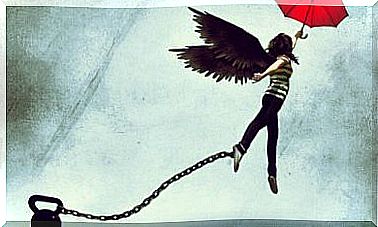How Fear Thrives On Ignorance

Fear is a basic human feeling. It has a very positive function in our lives. Because it is a very important part of our survival tools. Experiencing fear is not pleasant. But his performance is actually a sign of good mental health, as long as it’s a response to a real danger. But when it arises from an imaginary threat, it becomes a neurotic symptom and manifests itself as a torment. In this article, we want to examine whether there is an essential connection between fear and ignorance and the fear of the unknown.
Like other emotions, anxiety can reach different levels of intensity. This can range from simple suspicion to complete panic. When the fears are at a low level, the situation is fairly easy to overcome. But when the anxiety level is very high, it can exhaust the body’s mechanisms completely. There are cases when fear leads to complete paralysis. In these cases, the feelings literally paralyze the individual.
Neurotic fears sometimes get very complicated and confusing. They can last even when the stimulus that provoked them is already gone. In addition, there are ways of life and plans that we make in life that are built entirely around fear. These types of people are completely subject to the fear of people, situations or things around them. And they act accordingly. We can also see evidence of socially induced anxiety. The purpose of this is to break down the freedom of people and to be able to manipulate them more.
The fear of the unknown
One of the most fundamental fears present in all human beings is the fear of the unknown. If an object or situation is unknown to us, we are afraid of it, even if it poses no threat to us. If you suddenly bump into someone who has four arms, you will almost certainly take a step back out of fear. And if you don’t know anything about biology, the fear can be even greater. It has not so much to do with fear but with ignorance. For what the fear thrives on in this case is the inability to understand.
Familiar things bring peace and tranquility. But things that are foreign to us frighten us to varying degrees. When we begin to understand things, it brings us closer to a sense of familiarity. On the other hand, everything that is strange and incomprehensible scares us.

When we are confronted with a new situation but with elements that we recognize, we feel calmer. For example, when we visit a new city, it doesn’t really scare us. Because it has the familiarity of other cities: there are houses, buildings and streets. If, on the other hand, we visit a completely unfamiliar landscape, the situation may be different. Imagine that you have traveled to Antarctica and an animal appears that you have never seen before. Fear will then be your natural response. Because fear and ignorance go hand in hand.
Fear and ignorance
Knowing and understanding things reassures us. But ignorance puts us in a state of alarm. We don’t have to travel to Antarctica to experience that feeling. In today’s world, we live surrounded by very serious unknown dangers, such as so-called public “insecurity.” When you go out in certain areas or countries, there is no way you can know what will happen to you. If someone tells you that a certain street is dangerous, you will be afraid when you walk down that street, even if it looks very safe.
The same goes for the phenomenon called “terrorism.” It causes terror. And this is due to the fact that we don’t know when, where and how it will happen. Since terrorism is not limited to one area, it is essentially everywhere. It becomes a ubiquitous threat that creates a constant fear. As in the previous case, here too, fear and ignorance, or lack of knowledge, are a deadly cocktail. It is impossible to predict a threat that we know exists or at least suspect it does. And this causes our alarm mechanisms to spring into action.

Fear of the unpredictable
The behavior of these phenomena is unpredictable. Because we have no information or knowledge that would enable us to plan an appropriate response. All these “world threats” make us anxious to a greater or lesser extent. As a result, we rely on the people in power. Because they represent the control that we don’t have. Sometimes we feel that they are there to rescue us from the uncertainties when we are faced with danger. They must save us from fear and ignorance.
Primitive people were afraid of lightning because they didn’t know what it was or how to defend against it. Similarly, modern human beings are afraid of where or when danger will strike them. We experience this fear because we know it can harm us without warning. It won’t give us time to run from danger.
In ancient times, people invented false gods so that they could gain protection. In the same way, today we rely on the exceptional qualities of some leaders who promise to ward off danger. Just as knowledge liberates us and makes us more able to function properly, so ignorance condemns us to the bondage of fear.









